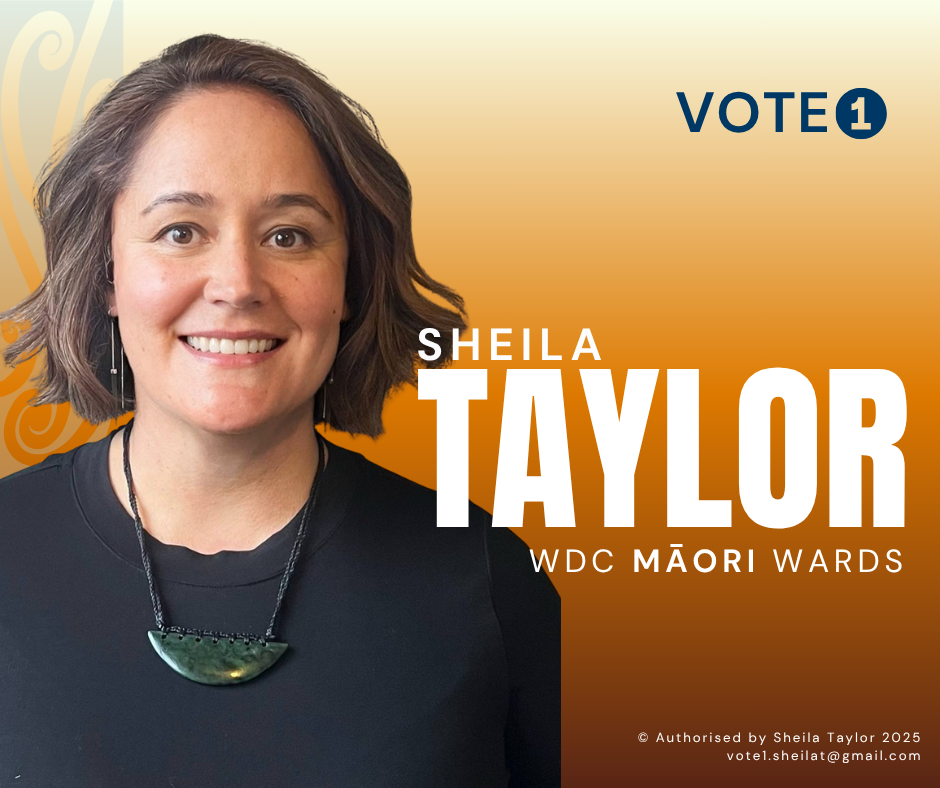Kāhore to Mining of Marine Sand
- Vote1.Sheila

- 7 days ago
- 2 min read
As a candidate for Whangarei District Council, my role is not to prejudge specific resource consent applications, but to advocate for robust policy frameworks and decision-making processes that ensure the right outcomes are made for our district. It is through this form of advocacy that I will be able to advocate for the views, needs and interests of Whangarei’s constituents.
With that said, my position on coastal resource management, including sand mining activities in our takutai, is grounded in three key principles:
Supporting Mana Whenua Perspectives
First and foremost, I stand with mana whenua, mana moana as they hold the mana in this situation to be heard, not me as a prospective councillor. My personal views, although aligned, are irrelevant. Hapū voices must always come to the fore. The spiritual, cultural, environmental, social and economic significance of the takutai moana to hapū cannot be separated from decisions about its physical use. Mana whenua has expressed their concerns and opposition to sand mining, and they speak from a perspective that encompasses not just immediate environmental effects, but intergenerational responsibility and the mauri (life force) of the land and sea. This holistic understanding is essential for making decisions that truly serve our community's long-term wellbeing.
Opposition to Fast Track Legislation
What I do oppose, is the use of fast-track legislation for projects of this nature. Complex environmental and cultural decisions require thorough consultation and meaningful community engagement - processes that cannot be rushed without compromising their integrity. Fast tracking undermines democratic participation and open sidelines the very communities most affected by proposed developments. It prioritises expedience over excellence in decision-making, creating risks of unintended consequences that could affect our district for generations. Our coastal environment and marine ecosystems are too precious to risk through hasty approvals.
Furthermore, the Marine and Coastal Area (Takutai Moana) Act 2011 provides specific frameworks for recognising customary rights and interests in the marine and coastal environment. Due to a long and drawn-out process, no decision has yet been made regarding customary marine titles and protected customary rights for this area, meaning the full extent of customary rights and interests have not yet been formally recognised or protected. Fast tracking development decisions while these fundamental questions of customary rights and interests remain unresolved undermines the intent of the Act and risks proceeding without proper consideration of all relevant rights and interests in this marine environment.
Embracing Te Ao Māori in Decision-Making
I advocate for long-term decision-making frameworks that integrate te ao Māori perspectives as a foundation for principled and ethical governance. Te ao Māori offers valuable concepts such as thinking seven generations ahead, understanding the interconnectedness of all elements in our environment, and prioritising collective wellbeing over short-term individual gains. Such approaches ensure that decisions about resource extraction consider not just immediate economic benefits, but the full spectrum of environmental, cultural, social, and economic impacts over time. It recognises that sustainable prosperity comes from working with natural systems rather than against them. The sand mining proposal presents exactly the kind of decision where these principles must guide us toward protecting what makes our district special for current and future generations.
Ehara taku toa i te toa takitahi, engari he toa takitini
My strength is not that of one person, but that of many


Comments